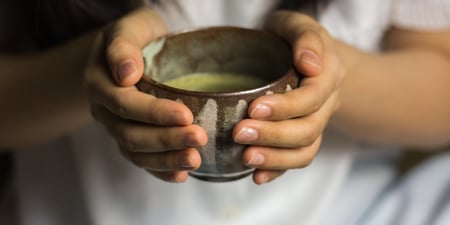How Plastic Is Warming Up Our World

Around 100 million tonnes of plastic are produced around the world annually, and from the beginning to the end of its life (which can be 400 years), every piece of plastic creates greenhouse emissions, which, as we all know by now, are dramatically contributing to the warming of our planet.
Plastic is made from materials which require fossil fuels - mainly oil and gas - so extracting and transporting these fuels generates greenhouse gases, as does plastic refining and manufacturing.
According to a report[1] by the Center for International Environmental Law, if plastic production and use grow as currently anticipated, by 2030, emissions could reach 1.34 gigatons per year - equivalent to the emissions released by more than 295 500-megawatt coal power plants. By 2050, it is expected that plastic production will have tripled, which means it will consume up to 13% of the earth’s carbon budget.
Equally troubling, Ms Major says, is the way the plastic waste is managed, with Australia discarding 95% of its plastic after a single use. Less than 12% is recycled, with the remainder going to landfills or being incinerated.

The incineration and production of plastic will produce more than 850 million tonnes of greenhouse gases this year, and by 2050, it could be 2.8 billion tonnes.
Our seas and the life they hold are literally being smothered by plastic, with 8 million tonnes of plastic waste polluting our oceans each year, a figure expected to double by 2030.
Not only is the plastic choking marine animals and their habitats, but because it takes so long to break down, sunlight and heat cause it to release greenhouse gases, creating a damaging cycle. When the plastic does break down, particles known as microplastics are ingested by marine animals including plankton, which are crucial in absorbing carbon dioxide.
Five Ways To Reduce Your Plastic Use
On a global scale, the WWF says we need to curb the production of plastic, ramp up recycling - and start to imagine a future without it.
As individuals though, there are a number of ways we can tackle the problem and reduce our use of plastics.
Here Are some Ideas To Make Your Life A Little Less Filled With Plastic...
- Choose paper picnic ware over plastic. For disposable cutlery, try bamboo.
- Buy reusable drinking straws.
- Get a reusable water bottle made from glass or stainless steel and a coffee cup.
- Recycle as much of your household waste as possible.
- At the supermarket, try to choose products that are not wrapped in plastic, for example, toilet paper wrapped in paper or loose fruit and vegetables.
If you’d like to learn more about ways to live more mindfully, consider booking a free discovery call with a life coach or a mindfulness practitioner on SoulAdvisor.
References
1. Plastic & Climate: The Hidden Costs of a Plastic Planet (May 2019). CIEL; [cited on 2024 Dec 30].
Disclaimer: This Content has been developed from our generous global community and is intended for informational purposes only. This Content is not, nor is it intended to be, a substitute for professional medical advice, diagnosis, or treatment and should never be relied upon. Further, the personal views and experiences published are expressly those of the author, and do not represent the views or endorsement of SoulAdvisor through the act of publication on our site.














